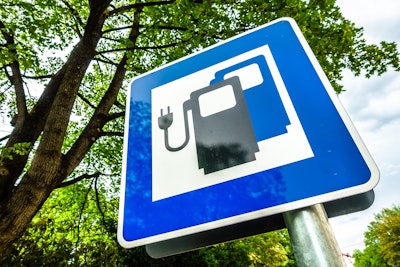
North American truck and engine manufacturers have been accused of failing to "keep their word" by legally challenging the validity of the Clean Truck Partnership agreement, which they entered into in 2023 with the California Air Resources Board (CARB).
The reality is that the legislative, regulatory and legal landscape has changed considerably in these past two years, and so have market conditions. The OEMs and the Engine Manufacturers Association are not members of the Clean Freight Coalition (CFC), so I do not speak on their behalf, but exiting this agreement, which the CFC has disagreed with from the beginning, was their only viable remaining option.
What has changed on the landscape since the signing of the CTP? Congress passed, and President Trump signed, Congressional Review Acts that rescinded CARB's authority to over-regulate federal emissions standards. The group of CTP signatories received a letter from the Department of Justice stating plainly that the CTP was unlawful, and the group was sued by the Nebraska Attorney General for antitrust violations stemming from entering into the agreement. Each of these developments are significant individually, but collectively they place the OEMs in an untenable position relative to CTP.
On top of all those developments, OEMs are not selling trucks. Clearly, OEMs want to sell zero-emission trucks, but too few fleets are buying them, even fewer shippers are demanding them, and fewer still consumers are willing to pay for it when those transportation costs are passed down. OEMs just want to sell trucks. They don't want to be caught in legal crossfire.
They have two primary purposes in our supply chain: 1) build trucks and 2) sell trucks. They're now in a position where they've been told it's unlawful to do what they were doing under the CTP, and they are not selling trucks.
Those knowledgeable about our industry knew that CARB's goals were never attainable. They were completely aspirational. When you start setting policy based on aspiration or dogma, it is rarely sustainable. Either the courts are going to strike it down, the next administration or the next Congress is going to strike it down, or the marketplace isn't going to be able to adapt. In this case, you basically have all four of those things happening. I think that maybe CARB should look in the mirror before they start accusing the OEMs of letting the nation down with regard to air quality.
Trucking emissions have significantly declined since the 1980s, with new clean diesel trucks producing up to 99% lower emissions of pollutants like nitrogen oxides and particulate matter. Our industry is a willing partner in clean air, but one can't be singularly focused on zero-emission trucks. We need to be looking at the total carbon footprint and the total emission impact of the powertrain.
And there are viable alternatives out there with a lower carbon footprint than battery-electric: whether it's renewable natural gas, renewable diesel, or biodiesel. Renewable natural gas (RNG) actually has a net-negative carbon footprint, and we're already seeing an uptick in interest in RNG, thanks in part to new equipment that better suits a wider range of trucking applications.
The CTP emerged from a state that had completely destabilized its trucking economy with its own rules—rules the CTP intended to enforce on every state in the country. Truck registrations in California in 2024 versus 2023 were down. Between Class 4 and Class 8 trucks, they were down 66% in California. Current model year registration data shows a 77% reduction in new tractor registrations compared to 2023. Other states did not have such dramatic declines.
Stability will come from, and has been shown to be the fruit of, the collaborative spirit between all trucking stakeholders, and that includes regulators. That's what we need to get back to, and that's why the CTP needs to go away.










